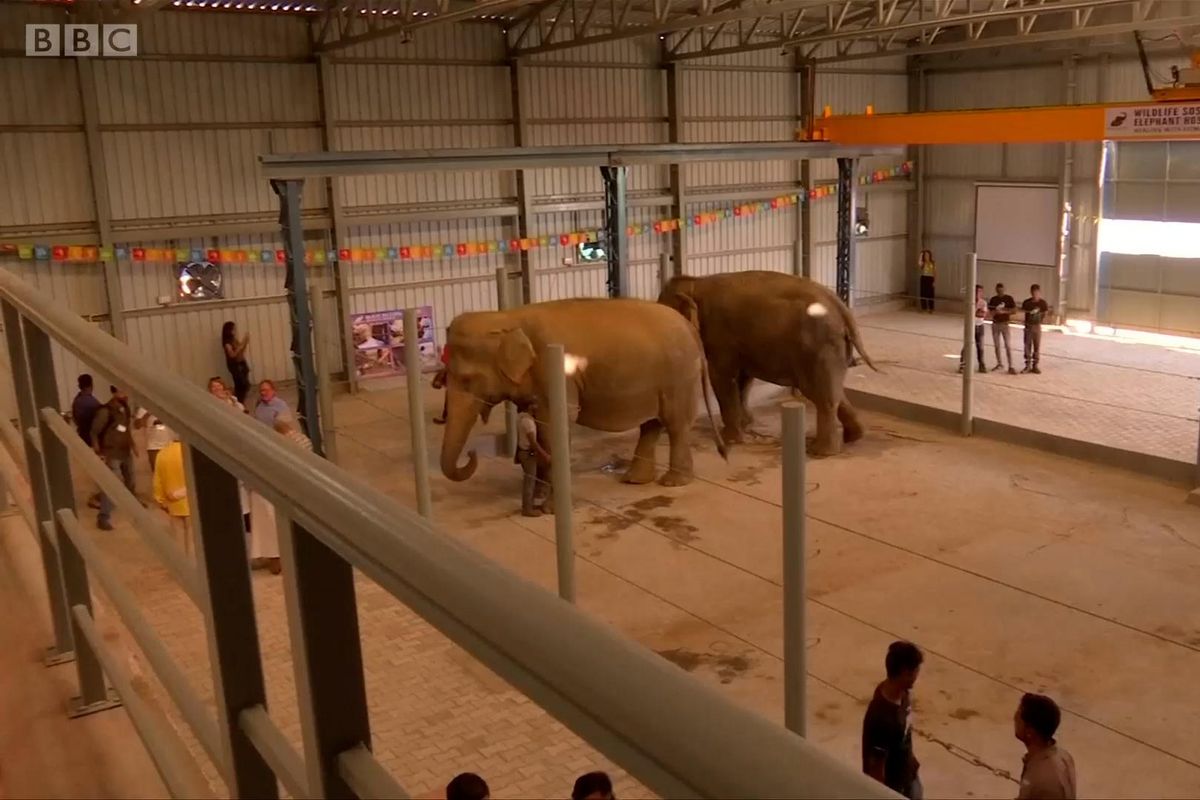Elephants in India can find care and compassion from humans in their very own hospital
“We can offer them a place where we can heal them."

With numbers dwindling conservationist take amazing action.
India’s first elephant hospital, the Wildlife SOS Elephant Hospital, opened in the Hindu holy town of Mathura, located in the northern state of Uttar Pradesh.
Injured, sick, rescued, and elderly elephants now have a home to receive the care that they need. The facility is run by non-profit Wildlife SOS. Wildlife SOS also runs a conservation and care center near the newly opened hospital, and is currently home to 22 elephants.
The Wildlife SOS Elephant Hospital was designed with the needs of our four-legged friends in mind. The 12,000-square ft. facility contains x-ray, thermal imaging, and ultrasound machines, tranquilization devices, a hydrotherapy pool, an in-house pathology lab, and quarantine facilities.
The hospital will even enable remote patients to receive care. “Our hospital has center with very portable kind of machinery,” explains Geeta Seshamani, Wildlife SOS co-founder. “So if an elephant is hit-and-run very far away anywhere in North India, we can go there and we can take care of it on site itself.”
“The hospital is something really special because for centuries India has used its elephants and abused them,” added Seshamani. “Today, for the first time, we can offer them a place where we can heal them and take very good care of them.”

Over 50 percent of Asia's wild elephants reside in India.
Photo pulled from Youtube video
Among those abused elephants who will find a safe haven at the Wildlife SOS Elephant Hospital will be elephants who were abused in captivity, elephants who were turned into tourist attractions, and elephants who were involved in freeway accidents.
“These elephants go through a lot of abuse, brutality, cruelty in order to be ridden,” Wildlife SOS co-founder Kartick Satyanarayan said in a BCC interview. “And through that process, they develop abscesses, internal problems, back problems, all kinds of health issues that need to be addressed.”
Between 50 and 60 percent of Asia’s wild elephants reside in India. Just 20 percent of domesticated elephants call the country home. With such a large elephant population, conservation should be at the forefront, especially since India’s elephant population is on the decline. In 2012, India’s elephant population was 29,391 – 30,711. By 2017, it had fallen to 27,312. World Wildlife Organization estimates there are as few as 20,000 in 2022.
Elephants are highly revered as both cultural and religious symbols in India, however they have been subjected to brutal mistreatment.
Some fall victim to the wildlife trade, while others are mistreated by mahouts (caretakers). Others are poached, poisoned, or electrocuted.
“I think by building a hospital we are underlining the fact that elephants need welfare measures as much as any other animal,” Seshamani told Reuters TV. “That captive elephants are not meant to be used and abused but instead have to be given the respect which an animal needs if you are going to be using the animal.”
You can watch the BBC News story on YouTube below:
This article originally appeared on 11.27.18

